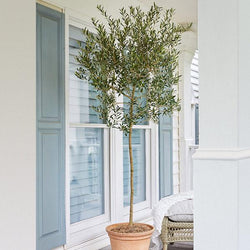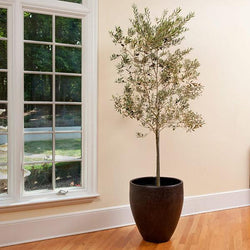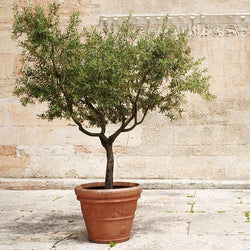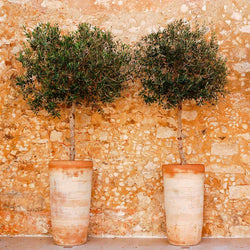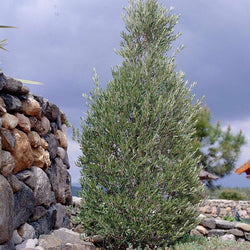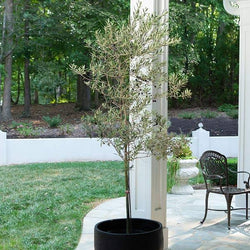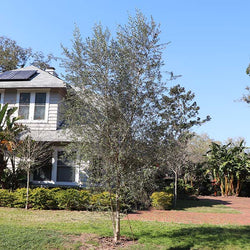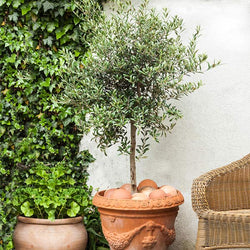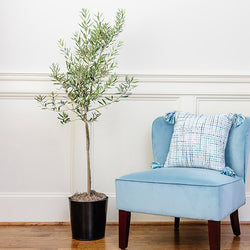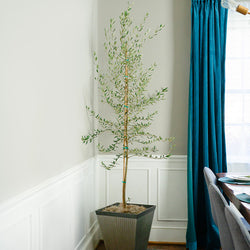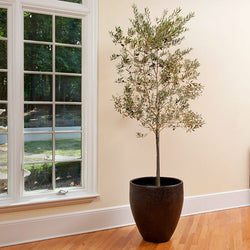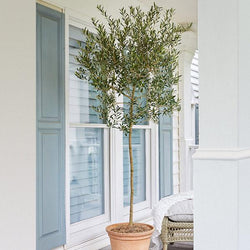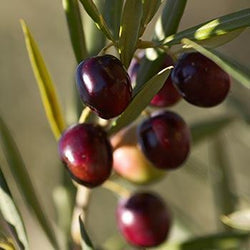Olive Trees
Showing 1 - 16 of 16 items
Sunlight: Full-Partial
Growth Rate: Moderate
Harvest Time: October-November
Starting at $149.95
Sunlight: Full-Partial
Growth Rate: Moderate
Harvest Time: Autumn
Starting at $149.95
Sunlight: Full Sun
Growth Rate: Moderate
Harvest Time: October-November
Starting at $99.95
Sunlight: Full Sun
Growth Rate: Moderate
Harvest Time: October-November
Starting at $119.95
Sunlight: Full Sun
Growth Rate: Moderate
Harvest Time: October-November
Starting at $119.95
Sunlight: Full Sun
Growth Rate: Moderate
Harvest Time: October-November
Starting at $119.95
Sunlight: Full
Growth Rate: Slow
Harvest Time: October-November
Starting at $69.95
Sunlight: Full Sun
Growth Rate: Moderate
Harvest Time: October-November
Starting at $119.95
Sunlight: Full-Partial
Growth Rate: Moderate
Harvest Time: October - November
Sold Out
Sunlight: Full-Partial
Growth Rate: Moderate
Harvest Time: October - November
Sold Out
Bring the Mediterranean to your homescape.
| Olive Type | Growing Zone | Harvest | Mature Height | Year to Bear | Annual Growth | Full or Partial Sun | Characteristics |
| Arbequina | Container/Indoor: 4-11 Outdoors: 8-11 | Oct-Nov | 20ft | 0 to 1 year | About 2ft Annualy | Full Sun | Small Spanish Olive tree from Catalonia, Spain. weeping blue-green leaves, ideal for small gardens Produces soft Spanish olive oil. |
| Koroeike Greek | Container/Indoor: 4-11 Outdoors: 8-11 | EarlyOct-Jan | 15-20ft | 1st year | About 2ft Annualy | Full/Partial Sun | Small Greek Olive tree from Athens, Greece, has two toned light and dark green leaves Produces fragrant cream colored flowers & sometimes produces both black and green olives. Makes velvety extra virgin olive oil. |
| Olive Type: | Arbequina |
| Growing Zone | Container/Indoor: 4-11; Outdoors: 8-11 |
| Harvest | October to November |
| Mature Height | 10 to 20 feet |
| Year to Bear | First year or sooner |
| Annual Growth | 2 feet |
| Full or partial Sun | Full Sun: 6 to 8 hours |
| Characteristics | Small Greek Olive tree from Athens, Greece, that makes velvety extra virgin olive oil. |
| Olive Type: | Koroneiki Greek |
| Growing Zone | Container/Indoor: 4-11; Outdoors: 8-11 |
| Harvest | Early October to January |
| Mature Height | 15 to 20 feet |
| Year to Bear | First year |
| Annual Growth | 2 feet |
| Full or Partial Sun | Full/Partial Sun: 4 to 8 hours |
| Characteristics | Produces fragrant cream colored flowers and sometimes produces both black and green olives. Makes velvety extra virgin olive oil. |
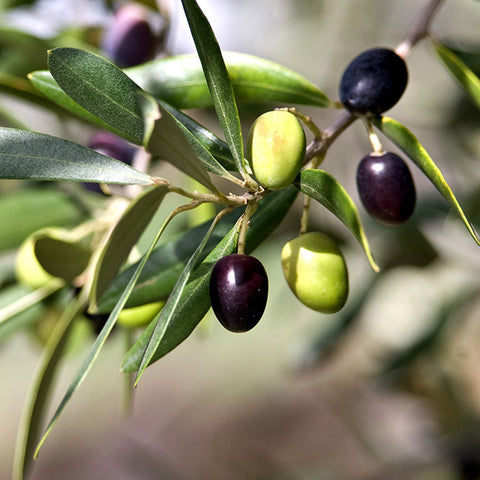
Where to Plant Olive Trees
Adored for its elegant structure and poised blue green leaves, this tree will look amazing as a potted plant or a year-round tree in your yard. If you’re planting the Arbequina Tree, whether it’s in a pot or in the ground, you should place it in an area that gets a full 6 to 8 hours of direct afternoon sunlight per day. If you’re going to grow this tree indoors, make sure that the leaves aren’t touching the window, because the sunlight will be intensified causing your leaves to burn.
The Koroneiki Greek Tree can thrive off of full sun or partial sun, making it the perfect plant if you have limited amount of sunlight.
How to Care for Olive Trees
When planting your Olive Trees in a container, choose a pot that is twice the size of the growing pot it was shipped in so that the roots have room to get established and also has drainage holes at the bottom. Container-grown plants require more watering than those planted in the ground, so make sure that you water the soil until it is soaked leaving time in between for the soil to dry.
If you’re planting your tree in the ground, wait until the spring, April or May, so that it has the entire summer to get established into the ground before winter comes. Dig a hole that is two to three times wider and deeper than the container it was shipped in, so that those roots have enough room to get established. Water your tree about twice a week until the roots mature, and mulch the surface to help conserve the moisture.
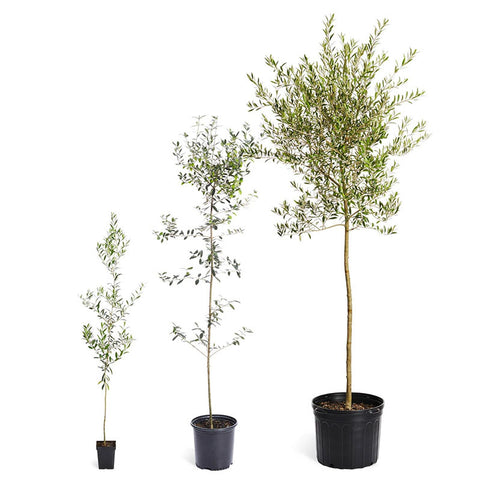
How to Prune Olive Trees + Pollination
Both the Arbequina and the Koroneiki Greek Olives are self-fertile, which means you can get a lot of fruit without a pollinator. If you would like to get an abundance of fruit, then you can cross pollinate the Arbequina with the Koroeiki.
As far as pruning goes, ensure that you remove dead, diseased or damaged branches year-round. Other than that, cuts made during the dormant season, after fruiting, should be fairly shallow and made at a 45-degree angle. Always ensure you're using clean, sterilized pruning shears to do your pruning.





